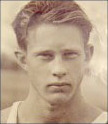Bob Emmett Fletcher facts for kids
Quick facts for kids
Bob Emmett Fletcher
|
|
|---|---|

Bob Fletcher
|
|
| Born |
Robert Emmett Fletcher
July 26, 1911 |
| Died | May 23, 2013 (aged 101) Florin, California U.S.
|
| Other names | Bob Fletcher |
| Alma mater | University of California, Davis (BS) |
| Occupation | Farmer |
| Years active | 1942-1945 |
|
Notable work
|
Assisted Interned Japanese during WWII |
Robert Emmett Fletcher Jr. (born July 26, 1911 – died May 23, 2013) was a kind-hearted farmer from Sacramento, California. During World War II, he quit his job as an agriculture inspector. He did this to take care of the fruit farms of Japanese families. Many Americans of Japanese descent were forced to leave their homes and go to special camps at this time. This happened because of something called Executive Order 9066. Bob Fletcher made sure their farms were safe until they could return.
Contents
Who Was Bob Fletcher?
Bob Fletcher was born in San Francisco, California on July 26, 1911. He grew up in a town called Brentwood. After high school, he went to the University of California, Davis. In 1933, he earned a B.S. in Agriculture. This means he studied farming and how to grow crops.
Bob married Teresa Cassieri, and they had a son named Robert Fletcher III. After the war, Bob and his family bought land in Florin, California. There, they raised cattle, which are farm animals like cows.
Why Was Bob Fletcher Important?
After college, Bob first managed a peach orchard. Then, he became a State Shipping Point Inspector. This job meant he checked farm products. In 1941, the Japanese attacked Pearl Harbor. This event led to a big change in the United States.
Helping Japanese Families During WWII
In 1942, the U.S. government issued Executive Order 9066. This order forced many Japanese Americans to leave their homes. They had to go to special camps, even if they were U.S. citizens. They lost their homes, businesses, and farms.
Bob Fletcher saw this happening. He decided to help. He agreed to manage 90 acres of grape farms for Japanese families. These farms were in the Florin area. Bob knew it was the right thing to do.
Facing Challenges to Do Good
Helping these families was not easy for Bob. He said that some people in his own community were not happy with him. He even found bullet holes in his barn. But Bob did not give up.
He used the money from farming the land to pay the taxes for the Japanese families. This helped them keep their land while they were away. From 1942 to 1945, Bob and his wife, Teresa, managed farms for families like the Tsukamotos, Nittas, and Okamotos.
The original plan was for Bob to keep the profits from the farms. But when the Japanese farmers were allowed to return home, Bob did something amazing. He gave all the money back to them. This helped them restart their lives after losing so much.
Later Recognition for His Actions
For many years, Bob Fletcher's brave actions were not widely known. Most of the Japanese Americans who were sent to the camps lost almost everything.
However, later in his life, Bob started to get the recognition he deserved. In 2005, he spoke about the internment of Japanese Americans. He shared his story with the Lodi Historical Society. In 2011, he was honored for his heroism. His story began to be told in books, showing how one person can make a big difference.
 | Laphonza Butler |
 | Daisy Bates |
 | Elizabeth Piper Ensley |

